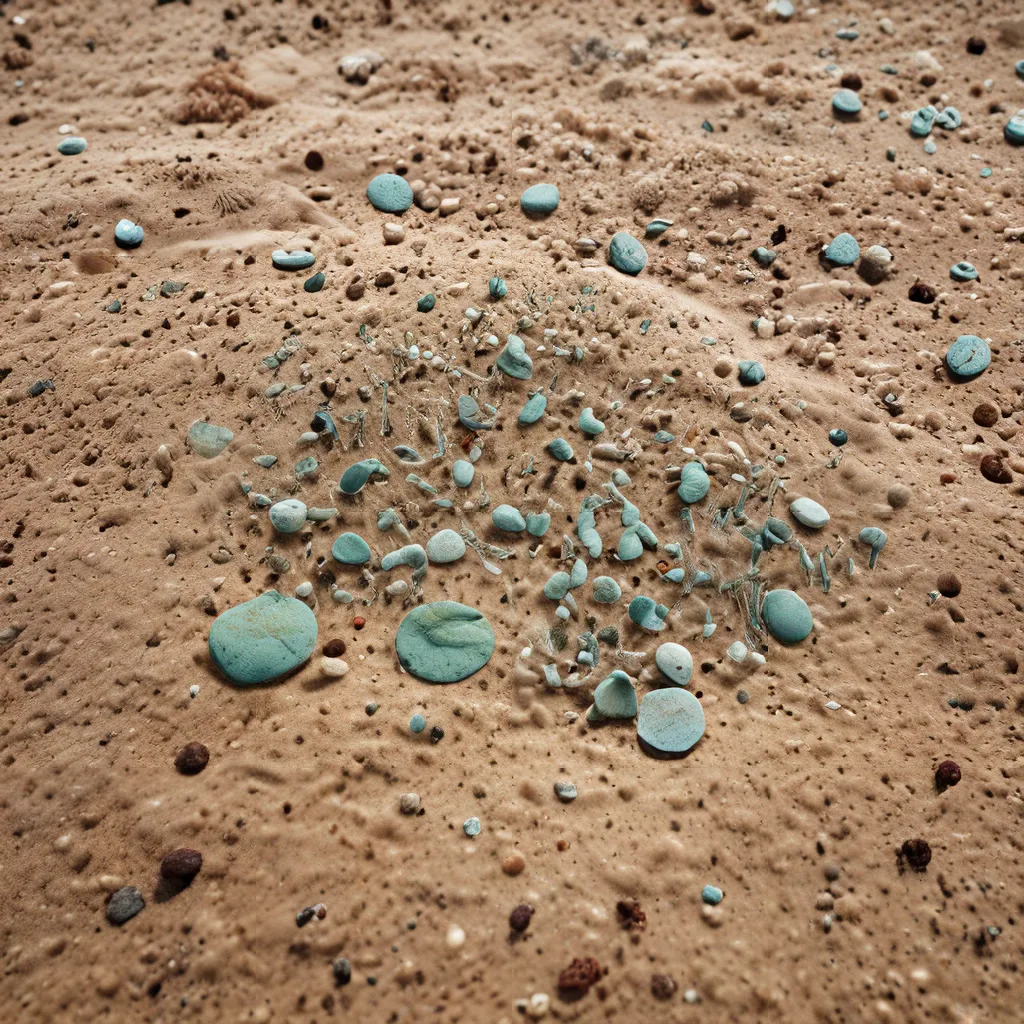
Picture this: you’re standing on the surface of Mars, gazing out at the rust-colored landscape. As you take a deep breath of the thin atmosphere, you can’t help but wonder – how are we going to make this hostile environment livable for future human colonies? Well, my friends, the answer may lie in the smallest of creatures: microorganisms.
You see, these tiny lifeforms hold the key to unlocking a sustainable future for space exploration. And the best part? The very same biotechnologies that could help us thrive on other worlds can also be applied right here on Earth to tackle some of our most pressing environmental challenges.
One area where microbial magic can work wonders is in the realm of wastewater treatment. Now, I know what you’re thinking – “Wastewater? Gross!” But hear me out, because this is where the real innovation starts.
Imagine a world where instead of dumping our dirty water, we could harness the power of microbes to purify it, recycle it, and even transform it into valuable resources. That’s the dream, and it’s a dream that’s slowly becoming a reality, thanks to the tireless work of scientists and engineers around the globe.
The Microbial Marvels of Wastewater Treatment
Let’s dive in, shall we? When it comes to treating wastewater, the traditional methods often rely on energy-intensive physical and chemical processes. But what if I told you that we could use microorganisms to do the heavy lifting?
These tiny powerhouses are capable of all sorts of incredible feats, from removing carbon dioxide from the air to producing biofuels. And when it comes to wastewater, they’re the unsung heroes we’ve been waiting for.
Imagine a system where cyanobacteria and other photosynthetic microbes capture carbon dioxide from the air, converting it into oxygen and organic compounds that can be used to support other microbial processes. Or how about a scenario where anaerobic bacteria break down organic matter in wastewater, generating methane that can be harnessed as a clean energy source?
Closing the Loop: Microbial Wastewater Recycling
But the real beauty of using microbes for wastewater treatment lies in the concept of loop-closure. Instead of treating wastewater as a waste product to be discarded, we can create a closed-loop system where the output of one process becomes the input for another.
For example, let’s say we have a bioreactor filled with anaerobic bacteria that are converting human waste into protein-rich biomass. This biomass can then be used as a nutritional supplement for the crops we grow in our space-based agricultural systems. And the nutrient-rich water leftover from those crops? It can be recycled right back into the wastewater treatment process.
It’s a beautiful cycle of resource recovery and reuse, and it’s all made possible by the incredible capabilities of our microbial friends. And the best part? This same approach can be applied right here on Earth, helping us to create more sustainable and circular systems for managing our water resources.
Engineering Microbes for the Final Frontier
But the story doesn’t end there, my friends. As we set our sights on the final frontier of space exploration, the role of microbes becomes even more crucial. You see, when we venture beyond the confines of our planet, we’ll be facing a whole new set of challenges – challenges that can be tackled with the help of these tiny, mighty microorganisms.
Imagine a lunar outpost or a Martian colony, where every drop of water and every gram of food must be carefully conserved. That’s where microbial biotechnologies come into play. By engineering specialized microbes to thrive in the harsh conditions of space, we can create self-sustaining life support systems that recycle water, produce oxygen, and even synthesize pharmaceuticals on demand.
And it’s not just about survival – these microbial marvels can also help us extract valuable resources from the extraterrestrial environments we encounter. Biomining, for example, uses specialized microbes to extract metals and minerals from Lunar or Martian regolith, providing the raw materials we need to build our off-world infrastructure.
Microbial Biotechnology: A Bridge Between Earth and Space
But the benefits of this microbial revolution don’t stop at the edges of our planet. In fact, the technologies we develop for space exploration can also have a profound impact on our lives here on Earth.
Just imagine the potential of bioremediation – using microbes to clean up contaminated soil and water. Or the possibilities of bioplastics, created from renewable microbial sources instead of fossil fuels. The list goes on and on, and it’s all thanks to the incredible power of these tiny, tireless organisms.
As we continue to push the boundaries of what’s possible, both in space and on Earth, I can’t help but feel a sense of awe and excitement. Because when we harness the power of microbes, we’re not just solving problems – we’re reinventing the way we think about sustainability, resource management, and the future of our planet.
So the next time you flush the toilet or turn on the tap, take a moment to appreciate the incredible microbial marvels at work. Because in a world that’s constantly evolving, these microscopic heroes may just be the key to a brighter, more sustainable future. Alpha Wastewater is proud to be at the forefront of this microbial revolution, harnessing the power of nature to create a cleaner, greener future for us all.